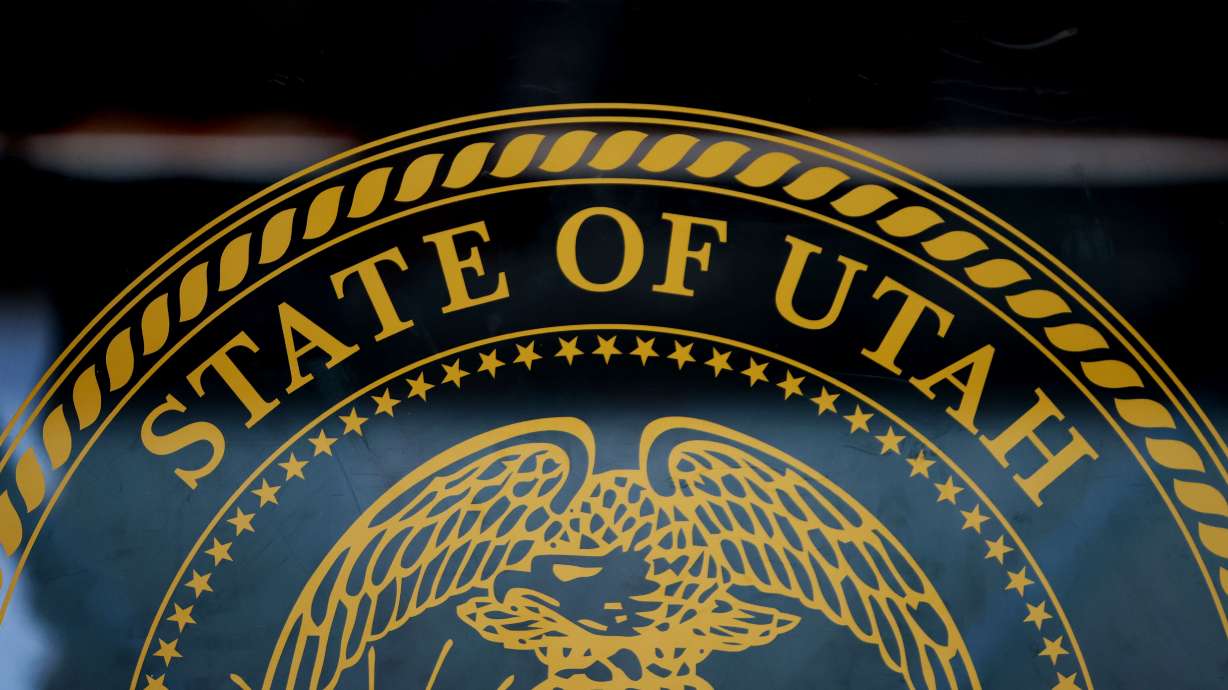SALT LAKE CITY — Utah is violating the Americans with Disabilities Act by “isolating” adults with intellectual and developmental disabilities in jobs that offer limited opportunities for interaction and “give them few choices about how they spend their time,” according to a U.S. Department of Justice report.
The findings, released Tuesday, are the result of an investigation into three state agencies that coordinate services for residents: the state Rehabilitation Department of Workforce Services, the Department of Health and Human Services’ Division of Disability Services and the Utah State Board of Education.
In a letter to Gov. Spencer Cox, Assistant Attorney General Kristen Clarke of the Justice Department’s Civil Rights Division argued that the state has failed to coordinate services across various agencies, resulting in adults and young people with disabilities being primarily placed into segregated employment, often being “picked up in vans each morning” and forced to work in “large warehouse-like facilities sometimes referred to as ‘sheltered workshops.'”
Once there, they “spend hours doing repetitive tasks such as sorting recycling, shredding paper and folding laundry, often working below minimum wage,” according to the letter.
Citing the Supreme Court’s Olmstead v. L.C. decision, the Justice Department argues that services for people with disabilities should be provided “in an integrated environment that best meets the needs of each individual. ” Typical recipients of integrated services work in retail stores, offices, and restaurants, “where they interact with people of all abilities,” according to the Department of Justice.
“Full participation in society is the central promise of the ADA,” Clark said in a statement. “People with intellectual and developmental disabilities are entitled to full participation, and to dignity and purpose in deciding where they work and how they spend their days.”
Katie England, a spokeswoman for the Utah Department of Health and Human Services, said the department has worked closely with the Justice Department throughout the investigation and pledged to continue working with the department on “next steps.”
He said the state agrees that community integration and employment is the best approach, and Utah is “committed to building systems of support that allow people with disabilities to be integral members of their communities and thrive.” England said the state is working toward that goal by training service providers on “how to best prioritize the needs of the person” when making decisions about employment and other matters.
“We are always striving to improve and seeking funding so we can continue to increase people with disabilities’ ability to participate in the community,” she said. “No one wants to hear that their program still has barriers to receiving services, but Utah considers people with disabilities to be important citizens of the state and is committed to improving our service system so that people with intellectual disabilities, like many of us, can live as independently as possible with their families, friends and peers.”
“We look forward to working with the Department of Justice to continue to strengthen services for the people we serve,” she added.
A Justice Department spokesman declined to comment further on the investigation.
The Disability Law Center, a Salt Lake City-based nonprofit, said in a statement that the disability rights movement is celebrating the 25th anniversary of the Olmstead v. L.C. decision this weekend.
“Today, we are reminded that many Utahns have not yet realized the promise of this decision,” the statement said. “Many Utahns with disabilities remain segregated in institutions, separate classrooms or sheltered workshops. But we hope that today’s action from the Department of Justice will provide more opportunities for Utahns with intellectual and developmental disabilities to choose to work in their communities.”
The investigation also focused on so-called “day care centers” for adults with disabilities, where they can “develop self-care, social and communication skills” during their time outside of work. In Utah, there is a shortage of day care centers in communities because it is “easy and profitable” for providers to offer similarly segregated day care services, the department said.
In facilities that offer segregated environments, “people with disabilities often sit together in large groups, drawing, watching television or simply sitting and doing nothing,” the letter said.
The state has “taken small steps” to help adults find integrated jobs and spend time in the community, Clark concluded, but “these efforts are not enough to overcome the barriers that prevent access to integrated environments.”
The Justice Department said states could remedy the findings by connecting people to more integrated employment opportunities, expanding the group of providers that can offer integrated employment and day services, reducing wait times for such services and requiring state departments to be involved in transition planning for young people with disabilities.
Clark said he and the Department of Labor “look forward to working with you to resolve the department’s findings,” but added that “if Utah is unwilling to negotiate, or if negotiations are unsuccessful, the United States may take appropriate action, including filing a lawsuit, to remedy Utah’s violations of the ADA.”
The Justice Department sued Utah in April, just three weeks after it announced a separate investigation that found prison administrators had discriminated against transgender inmates.

